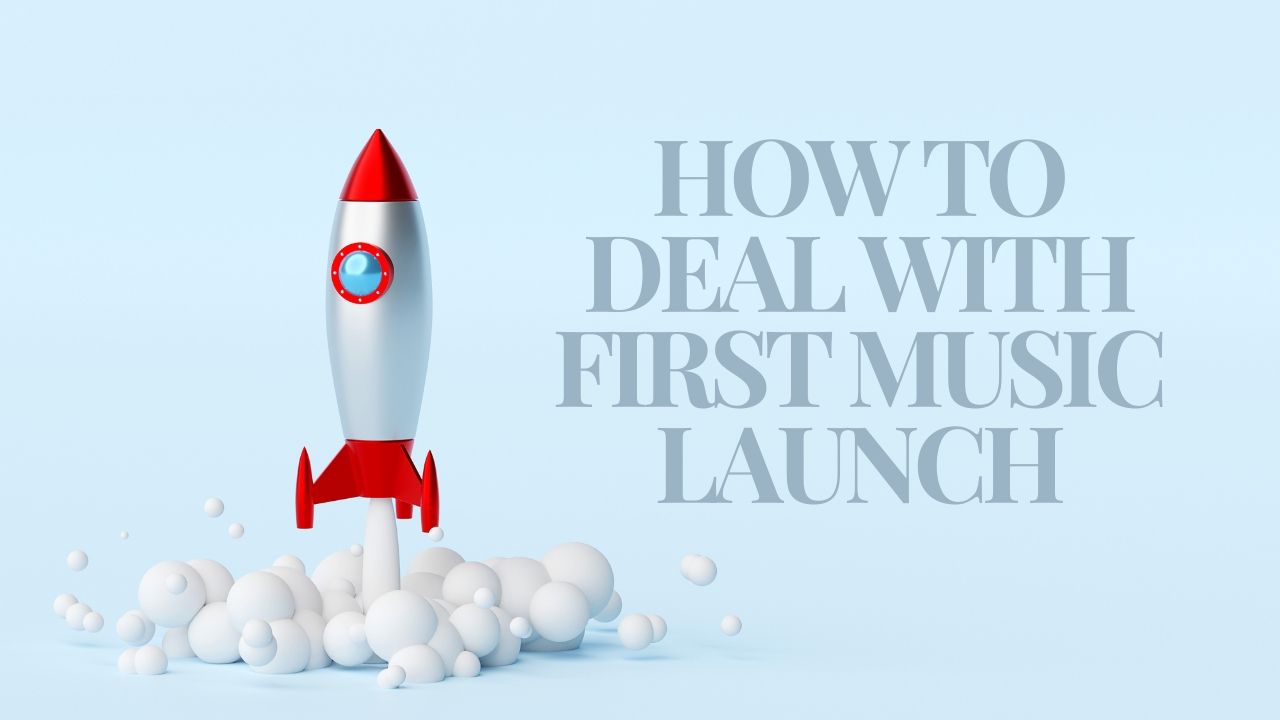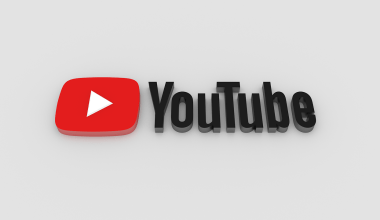Launching your first music can be both exciting and nerve-wracking. It’s a defining moment in your career as an artist, and how well you manage this event can set the tone for your future success. In this detailed guide, we’ll walk you through how to deal with your first music launch to ensure it’s a success. We’ll cover every critical step, from the initial planning stages to promotion and post-launch activities.
Understanding the Importance of Your First Music Launch
Your first music launch is not just another release; it’s your introduction to the music world. This is the moment when you present yourself to potential fans, industry professionals, and collaborators. The impression you create can influence how your music is received now and in the future. Learning how to deal with your first music launch effectively is essential for building a strong foundation for your career.
The success of your first music launch can help you gain a following, attract the attention of record labels, and establish your brand as an artist. It’s about more than just getting your music out there—it’s about making a statement. This phase also sets the stage for your relationship with your audience and the industry, so getting it right is crucial.
Planning Your First Music Launch
The first step in how to deal with your first music launch is thorough planning. Without a solid plan, your efforts might not yield the results you want. Here’s how to start.
1. Set Clear Goals
What do you aim to achieve with your first music launch? Are you looking to gain followers, attract the attention of industry professionals, or simply share your music with the world? Setting specific, measurable goals will guide your entire launch strategy and help you focus your efforts.
2. Choose the Right Release Date
Timing is everything in the music industry. Choosing the right release date is a key part of how to deal with your first music launch. Avoid releasing your music during major holidays or when well-known artists are launching new projects. Instead, pick a date when your music can stand out and attract attention. Consider your target audience and when they are most likely to engage with new music.
3. Create a Budget
A well-planned budget is essential for managing costs and ensuring a successful launch. While your first music launch doesn’t have to be expensive, it’s important to allocate funds for key areas such as production, promotion, and distribution. Having a budget will help you make informed decisions and avoid overspending.
4. Build a Team
Although it’s possible to manage everything on your own, having a team can greatly enhance the success of your first music launch. Your team might include a manager, publicist, graphic designer, and social media expert. These professionals can help you navigate the complexities of the music industry and execute a well-rounded launch strategy.
5. Plan Your Marketing Strategy
Marketing is a critical component of how to deal with your first music launch. Even if your music is outstanding, it won’t gain traction if no one knows about it. Developing a comprehensive marketing strategy is crucial. This should include social media promotion, email marketing, press releases, and possibly even paid advertising campaigns. The more people know about your launch, the better your chances of success.
Preparing Your Music for Release
With your plan in place, the next step in how to deal with your first music launch is preparing your music. This involves ensuring that every aspect of your release is polished and professional.
1. Finalize Your Tracks
Before anything else, make sure your tracks are fully produced and mastered. The sound quality needs to be impeccable, as this will be the first impression listeners have of your work. Professional mastering can make a significant difference in how your music is received.
2. Artwork and Branding
Your music’s visual representation is just as important as the audio. Invest in high-quality album art, promotional images, and other visual elements that will be associated with your launch. Consistent branding across all platforms will help establish your identity as an artist.
3. Distribution Channels
Choosing the right distribution channels is a key element of how to deal with your first music launch. Decide where you’ll distribute your music—popular platforms like Spotify, Apple Music, and YouTube are essential, but also consider platforms like Bandcamp or SoundCloud, especially if you’re an independent artist. Ensuring that your music is available on multiple platforms increases your chances of reaching a wider audience.
4. Pre-Release Buzz
Generating buzz before your release is crucial. Start teasing your audience with snippets of your music, behind-the-scenes content, or countdowns on social media. Building anticipation is one of the most effective strategies in how to deal with your first music launch. When done right, a well-executed pre-release campaign can lead to a surge of interest and excitement on launch day.
Executing the Launch
The big day has finally arrived. This is where all your planning and preparation come together. Here’s how to ensure your launch day is a success.
1. Release Your Music
On launch day, upload your music to all the chosen platforms at the scheduled time. Double-check that everything is working as planned and that there are no technical issues. Your first music launch should be seamless, leaving a positive impression on your listeners.
2. Announce the Launch
As soon as your music is live, use all available channels to announce it. Social media, email lists, and your website should all be updated to inform your audience that your music is now available. The more platforms you use to spread the word, the better your reach will be.
3. Engage with Your Audience
Engaging with your audience is a crucial part of how to deal with your first music launch. On launch day, take the time to interact with your fans. Respond to comments, thank them for their support, and encourage them to share your music. Engagement is key to building a loyal fanbase.
4. Monitor Feedback
Pay close attention to the feedback you receive after your launch. Whether it’s positive or negative, feedback can provide valuable insights into how your music is being received. Use this information to adjust your approach for future releases.
Post-Launch Activities
The launch doesn’t end on release day. What you do after the launch is just as important as the launch itself. Here’s how to continue the momentum.
1. Keep Promoting
Promotion shouldn’t stop once your music is out. Continue promoting your music in the weeks following the launch. Regular posts on social media, interviews, and performances can help maintain the buzz around your music. Consistency is key to staying relevant.
2. Analyze Your Results
Analyzing the results of your launch is an essential part of how to deal with your first music launch. Look at the data from your release—what platforms performed the best, what type of content got the most engagement, and which strategies were the most effective. This information is invaluable for planning future releases.
3. Connect with Industry Professionals
With your music now out in the world, it’s time to network. Reach out to industry professionals, including bloggers, playlist curators, and radio stations. Building relationships in the industry can open doors for future opportunities and help you grow as an artist.
4. Plan Your Next Steps
Your first music launch is just the beginning. Use the experience you’ve gained to plan your next moves. Whether it’s releasing new singles, performing live, or working on a full album, every step should build on the momentum you’ve created.
Common Mistakes to Avoid
Avoiding common pitfalls is a crucial aspect of how to deal with your first music launch. By learning from the mistakes of others, you can set yourself up for success.
1. Rushing the Process
It’s natural to want to get your music out as quickly as possible, but rushing the process can lead to mistakes. Take the time to ensure everything is polished and ready. Patience and attention to detail can make all the difference.
2. Neglecting Promotion
No matter how good your music is, it won’t sell itself. One of the biggest mistakes new artists make is neglecting promotion. Make sure you’re doing everything possible to get your music heard by as many people as possible.
3. Ignoring Feedback
Feedback, especially from industry professionals, is invaluable. Don’t dismiss constructive criticism. Instead, use it as a tool to improve and refine your craft.
4. Overestimating Your Reach
It’s great to be optimistic, but be realistic about how far your music will reach. Focus on gradual growth and building a loyal fanbase, rather than expecting overnight success.
Building a Long-Term Strategy
Your first music launch is a significant milestone, but it’s only the beginning. Here’s how to ensure continued success beyond your first release.
1. Develop a Content Calendar
Consistency is key in maintaining interest in your music. After your launch, develop a content calendar to keep your audience engaged. This could include new music, videos, live sessions, or even behind-the-scenes content. Regular updates will keep your audience connected to your journey as an artist.
2. Stay Consistent
Staying consistent with your releases is another crucial aspect of **how to deal with your first music launch and beyond. After your first music launch, keep your audience engaged by consistently releasing new content. This could be in the form of singles, remixes, or even collaborations with other artists. The more you release, the more opportunities you create for people to discover your music. Consistency helps build your reputation and ensures that your audience remains interested in what you have to offer.
3. Expand Your Network
Networking is an ongoing process that doesn’t stop after your first music launch. Continue to build relationships within the industry. Attend events, participate in online music forums, and collaborate with other artists. The more connections you make, the more opportunities you’ll have to grow your career. Networking can lead to collaborations, gigs, and even opportunities for features on major platforms.
4. Invest in Your Craft
Never stop learning and improving your skills. The music industry is constantly evolving, and staying updated with the latest trends and techniques is crucial. Whether it’s through formal education, workshops, or self-study, continually investing in your craft will keep you ahead of the curve. This dedication will not only improve the quality of your music but also enhance your credibility as an artist.
5. Engage with Your Fans
Building a strong relationship with your fans is a key element of how to deal with your first music launch and sustain your music career. Engage with your audience regularly, whether through social media, live chats, or fan meetups. Showing appreciation for your fans can turn casual listeners into loyal supporters who will promote your music and attend your shows. Fan engagement is crucial for building a community around your music.
Leveraging Data and Feedback
One of the most effective ways to improve after your first music launch is by leveraging the data and feedback you receive. This information can provide insights into what worked well and what didn’t, allowing you to make informed decisions for future releases.
1. Track Your Metrics
Pay attention to metrics such as streams, downloads, and social media engagement. These numbers will give you a clear picture of how your music is performing. Platforms like Spotify for Artists and YouTube Analytics offer detailed insights that can help you understand your audience better. Knowing which songs or promotional strategies are resonating with your listeners will guide your future efforts.
2. Listen to Constructive Criticism
Not all feedback will be positive, and that’s okay. Constructive criticism can be incredibly valuable. Whether it’s about the production quality, songwriting, or even your marketing strategies, take this feedback seriously. Use it as a tool for growth. The ability to listen and adapt is a significant part of how to deal with your first music launch and build a long-lasting career in the music industry.
3. Adapt and Evolve
The music industry is dynamic, and what works today might not work tomorrow. Be prepared to adapt and evolve based on the feedback and data you receive. This could mean experimenting with new genres, changing your marketing approach, or even rebranding. Flexibility and willingness to change are key factors in maintaining relevance and growing as an artist.
Creating Long-Term Success
Your first music launch is just the beginning. To build a sustainable career, you need to focus on creating long-term success. This involves more than just making great music—it requires strategic planning, continuous learning, and a strong connection with your audience.
1. Develop a Brand Identity
Your brand is what sets you apart from other artists. It’s how your audience perceives you, and it influences everything from your music to your visual presentation. Developing a strong brand identity is an essential step in how to deal with your first music launch and beyond. Your brand should reflect your personality, values, and the message you want to convey through your music. Consistency in your brand identity will help you build a loyal fanbase and attract opportunities that align with your artistic vision.
2. Build a Dedicated Fanbase
A dedicated fanbase is one of the most valuable assets you can have as an artist. These are the people who will support your music, attend your shows, and promote your work. Building a dedicated fanbase takes time and effort, but it’s worth it. Engage with your fans regularly, show appreciation for their support, and create content that resonates with them. A strong fanbase is crucial for long-term success.
3. Stay Ahead of Industry Trends
The music industry is always changing, and staying ahead of trends can give you a competitive edge. Whether it’s new music genres, emerging social media platforms, or innovative marketing techniques, being aware of industry trends can help you make informed decisions. This knowledge is vital in adapting your strategies and ensuring your music stays relevant in a fast-paced industry.
4. Diversify Your Income Streams
Relying solely on music sales or streaming revenue can be risky. Diversifying your income streams is a smart way to build financial stability in your music career. This could include merchandise sales, live performances, licensing your music for commercials or films, and even teaching music. By creating multiple sources of income, you can ensure that your career is sustainable in the long term.
5. Plan for the Future
Finally, always have a plan for the future. Your first music launch is a significant milestone, but it’s just one part of your journey. Set long-term goals and develop a roadmap for achieving them. Whether it’s releasing an album, going on tour, or signing with a record label, having a clear vision for your future will keep you motivated and focused on your career.
Conclusion
Dealing with your first music launch can be a challenging but rewarding experience. By following the steps outlined in this guide, you can ensure that your debut makes a lasting impact. From planning and preparation to promotion and post-launch activities, every aspect is crucial for success. Remember, your first music launch is just the beginning. By continuing to learn, adapt, and grow, you can build a sustainable and successful music career.
Understanding how to deal with your first music launch is the first step toward a bright future in the music industry. With careful planning, strategic execution, and ongoing engagement with your audience, you can turn your debut into a strong foundation for your career. Keep making music, stay true to your vision, and continue striving for excellence. Your first music launch is just the start of your exciting journey in the world of music.
For further reading, explore these related articles:
- Unlocking the Power of Spotify Discovery Mode: A Guide for Artists
- How to Increase Followers on Spotify
- Top Music Streaming Apps in India
For additional resources on music marketing and distribution, visit Deliver My Tune.






